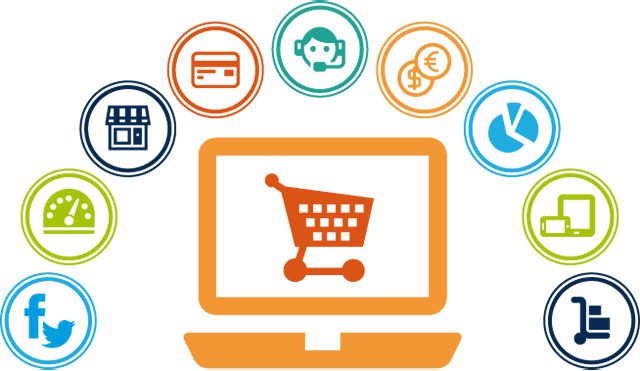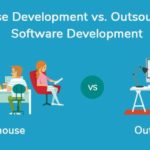Having a fast website is critical, especially for an Ecommerce Website. After all, we’ve all been in long queues at the store – and all of us wanted to be ready and get out faster. Well, that concept works the same way with your website – customers want to get in, complete what they’re here for, and get on with their day.

Now, distractions are everywhere – someone else might write or call your potential customers while they are waiting or they might find something else interesting. This website shows a great infographic on attention spans – which are now possibly shorter than that of goldfish.
Ultimately, it can be a matter of seconds until a user changes their decision and their behavior – and unfortunately shop at another webshop. And all-in-all, you don’t want them to“change their mind” while waiting for things to load.
So to help you with that, we’ll look at 3 concrete benefits of having a fast website for your eCommerce business.
Why Do Users Need Faster Websites?
The answer is easy – a better user experience. Overall, the idea of a faster website is that it can deliver content faster to the end-user – and therefore improve all other activities the user does on your website.
Unfortunately, slow websites perform worse on all of their important metrics and KPIs – everything from fewer conversion to higher bounce rates and fewer pages per session. Users don’t have the patience to wait for your website to load – and are likely to drop off at any time during their exploration process. This can be especially negative for higher-ticket products where the sales cycle or funnel is long. Essentially, throughout the funnel, there will always be people that drop off – but those last few percentages that you might be losing because of your site speed can really hurt your ROI.
With that, let’s explore some specific activities and marketing channels that can get negatively impacted by a website that is not up to standards in terms of load speed.
1. Website Rankings in Google
Speed is one of the factors Google uses when it ranks websites. That’s because they want to deliver the best experience possible to the end-user – and therefore they prioritize websites that can deliver that.
In fact, this factor is not just a one-way street. That is, by optimizing your website speed you’re not only delivering a better experience to your end-users but also they are more likely to stay longer on the page.
While there’s a lot of discussions on how much actually your website speed matters for rankings, there’s no doubt that it actually does affect rankings. Of course, there are many variables here, so there’s a difference in performance in different industries. After all, you likely can’t expect a video content website to be as fast as a web programmer’s portfolio one-pager, similarly to how a programmer’s one-pager can’t be judged against a photography website with tons of images. However, when we cross the 3-4 second mark, there is a direct correlation with lower keyword rankings.
This factor actually becomes even stronger when looking at mobile rankings. That’s because mobile devices are usually not as powerful as desktop devices – and they use mobile data – both of which can make an average website loading speed extremely slow on them. And because Google searches through mobile devices are constantly on the rise compared to desktop, Google has (rightfully so) prioritized website speed.
Now, let’s be clear. As with everything in SEO, having a fast website is not enough to rank at the top. However, it is one of those things that can prevent you from reaching the top. If you’ve optimized everything else but your website still takes quite a while to load, this could be why your website isn’t climbing rankings.
2. Purchases & Conversions
Additionally, a faster website (or the lack thereof) can also impact your website conversions. To be exact, the slower a website the lower the eCommerce conversion rate is
If the users want to add something to the cart but it takes them half a minute to do so, they might think the website is broken and doesn’t work. Because of that, they might choose a competitor – not only in the short term but also in the long term. That way you can significantly hurt your brand – because it’s harder to change a negative idea about your business to your end-users rather than creating a good one from the ground up.
Now, the obvious reason is that by having a fast website, your users can explore more product pages quicker and potentially buy more things. They know your website works, and they feel good when using it because it’s quick. They have the mind space to explore more products because the content they expect to see is delivered in an instant.
To be precise, this study looked at the correlation between website speed and conversion rate. They found that the first 5 seconds of the page load time has the biggest effect on conversion rates.
So the bottom line is, keep your website under 5 seconds of load time, and ultimately around or below 3 seconds.
3. Paid Search Campaigns
If you have a slow website, your PPC campaigns can suffer as well. That’s because the users are more likely to bounce once they try to access your site – and therefore not convert. Because in Google Ads you pay for each click, converting fewer of them will directly mean that you’re paying more than you should or potentially could. Indirectly, this also affects the performance of your ads. When users bounce, Google sees this as relevance signals – which in this case would be “irrelevance” signals. Therefore, your ad Quality Score might drop – in which scenario your ads won’t be shown at the top of the page.
Now, your Quality Score is the bread and butter of showing at the top in Google Ads. There are only so many spots – and the competition is usually tough. It is influenced by many factors that judge the relevance of your ads compared to the keywords you’re showing up for – but ultimately comes down to the overall user experience based on user signals. Therefore, the slower your website is, the worse experience the end-users have. The worse their experience is, the worse Quality Score you will have. And from there it’s an uphill battle trying to generate sales.
Closing Words
By now you can see that having a faster website clearly has advantages to your eCommerce business – your users are happier and more satisfied because their experience is great, and with that, you benefit from all your other marketing activities.








